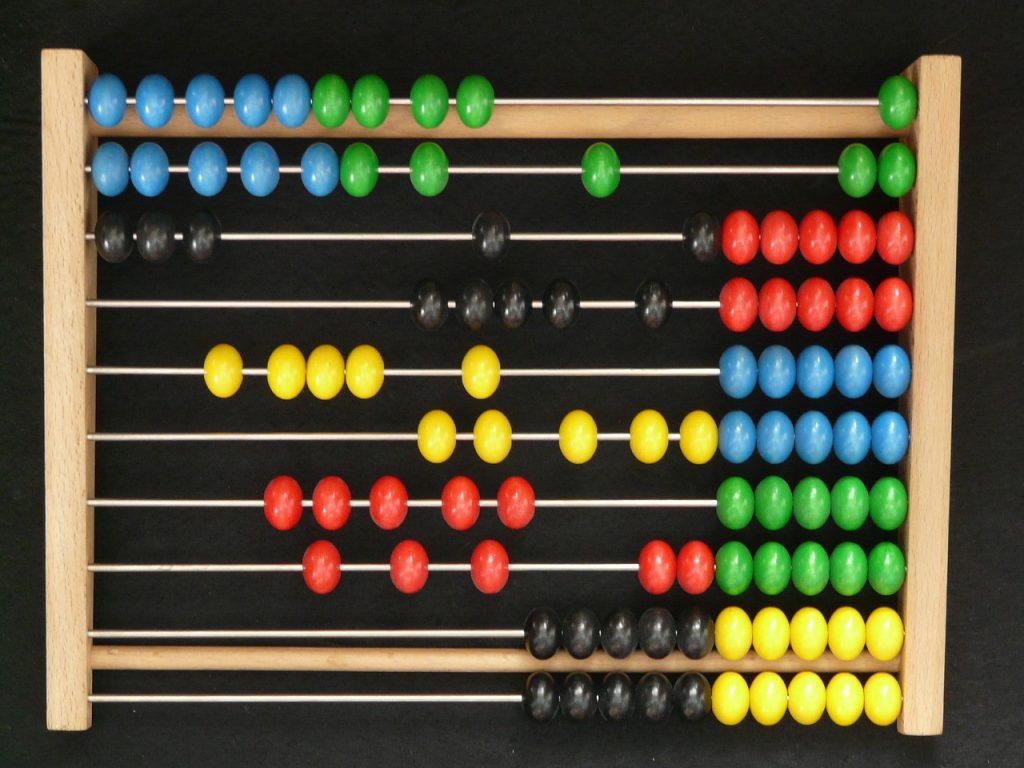Many theories on early childhood education promote children’s natural curiousity to discover mathematical concepts. Given manipulatives, children naturally experiment, hypothesize, and build their own theories. An abacus is a great toy for building such knowledge, and Melissa and Doug make an affordable wooden one of high quality. Many other kinds of manipulatives, like marbles, get lost around the house. I like that the counters are securely attached to the abacus making clean up an ease. On an abacus, the counters are arranged in sets of ten that slide along a metal rod. Initially, I showed my daughter how to add simple problems with the abacus. ON HER OWN, she has discovered the tens place is represented on each row, how to add larger two digit numbers, and how to subtract using the abacus. I have been amazed how her abacus play has evolved to this level. On paper, she is not be able to carry numbers when adding two digit numerals or borrow during subtraction, but she has naturally discovered these properties with the abacus. Of course my two-year-old son just likes to slide the counters and play with the abacus. Eventually his play will lead to numerical sensibility. This toy is really a tool that has its origins in antiquity. It is known to have existed in 1000 BCE in Babylonia and China, according to Wikipedia. Merchants around the world still use this ancient calculator, so it is perfect for our children!

i cant find how to play an abcus with demo